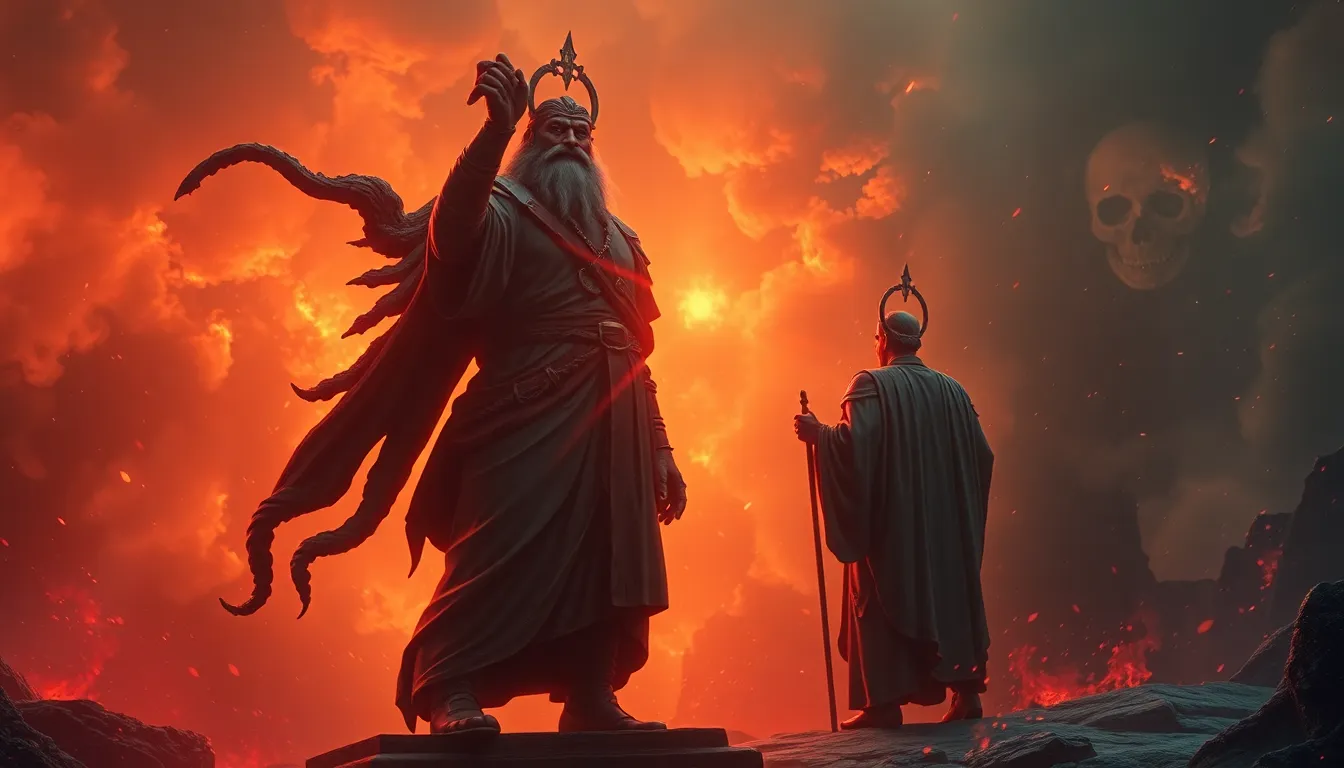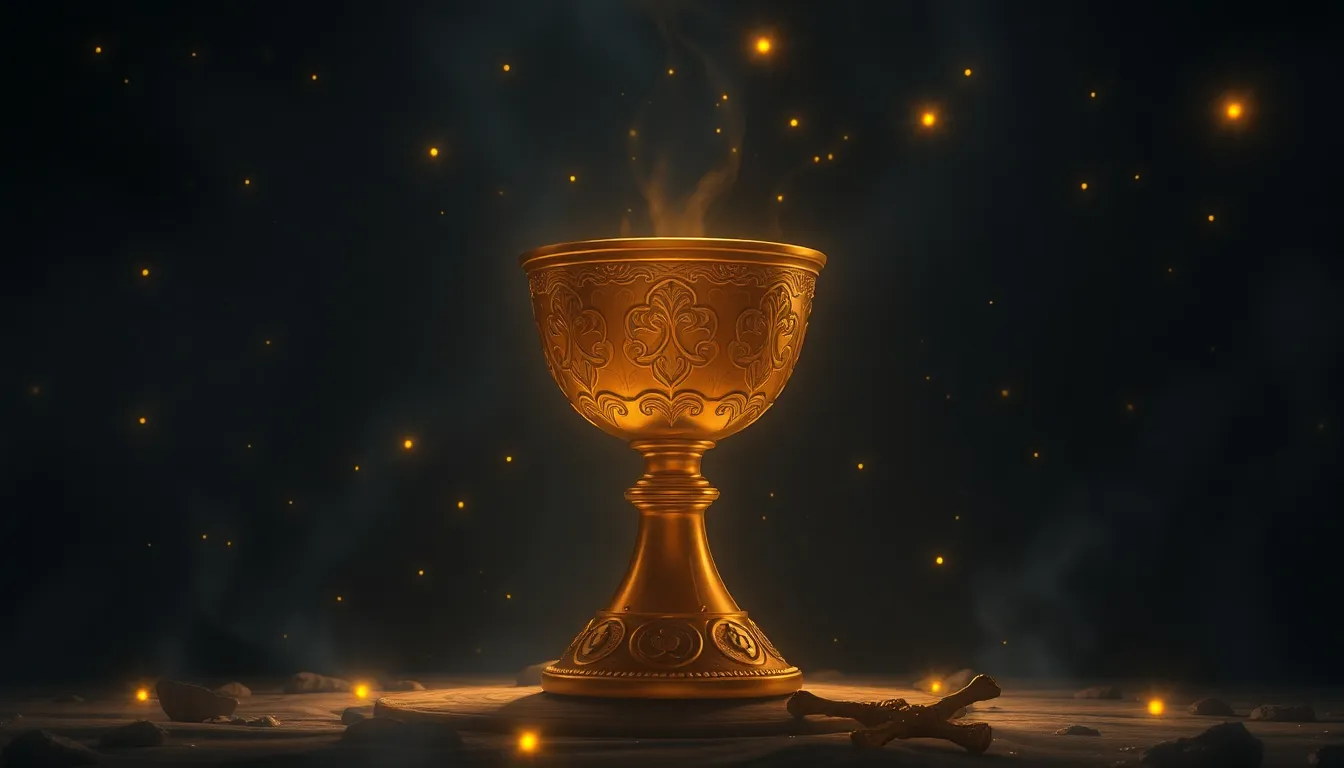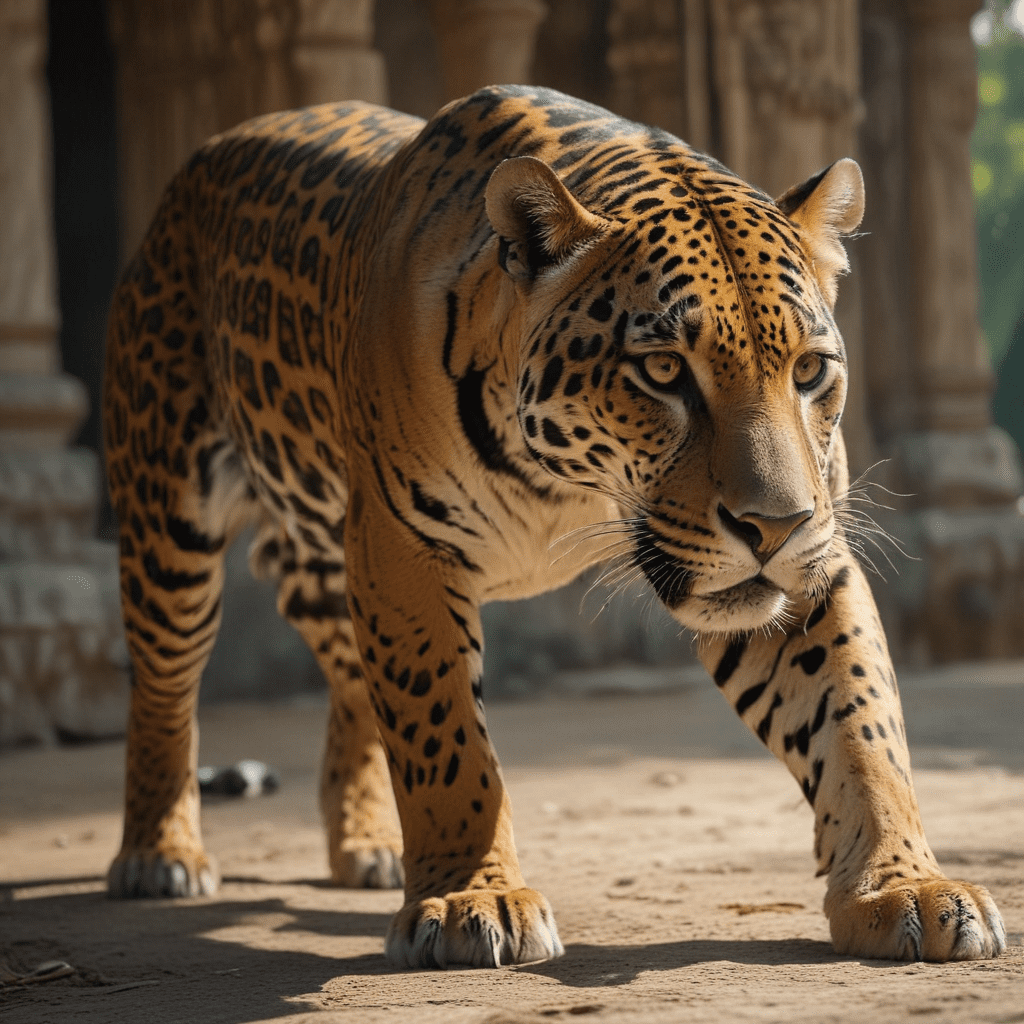The Sacred Whale: Mysteries of the Deep in Mythology
I. Introduction
Whales have long captivated the human imagination, serving as powerful symbols across various cultures and mythologies. These majestic creatures of the deep not only inspire awe with their size and grace but also carry profound meanings that resonate through ancient stories and modern narratives alike.
The purpose of this article is to explore the intersection of mythology and marine biology, delving into the significance of whales in different cultural contexts. We will examine how whales are depicted in myths, what they symbolize, and how these stories reflect humanity’s relationship with the natural world.
Throughout history, whales have emerged as symbols of wisdom, strength, and connection to the divine, weaving their way into the fabric of countless traditions and beliefs.
II. The Whale in Ancient Civilizations
A. Whales in Mesopotamian mythology: The Enuma Elish and Tiamat
In ancient Mesopotamian mythology, the creation epic known as the Enuma Elish features Tiamat, who is often depicted as a primordial goddess of the saltwater ocean. Tiamat’s battle against the younger gods culminates in her defeat, where her body is split to form the heavens and the earth. This narrative positions the whale metaphorically as a powerful force of chaos and creation, reflecting humanity’s understanding of the ocean as both nurturing and destructive.
B. The significance of whales in Norse mythology: Aesir, Jörmungandr, and the world serpent
Norse mythology presents Jörmungandr, a colossal sea serpent that encircles the earth, representing the boundary between order and chaos. As a child of Loki, this creature embodies the dangers and mysteries of the ocean. The imagery of whales in Norse tales often symbolizes the vastness of the sea and the ultimate confrontation between gods and monsters.
C. Whales in indigenous cultures: The role of the orca in Pacific Northwest tribes
In the cultures of the Pacific Northwest, the orca is revered as a significant spiritual figure. Indigenous tribes view the orca as a protector and a symbol of family and community. Stories about orcas often emphasize their intelligence and social structures, reinforcing the connection between these creatures and the human experience.
III. Symbolism of Whales in Mythology
A. Whales as messengers of the gods: The connection between divine and earthly realms
In many mythologies, whales are seen as intermediaries between the gods and humanity. Their immense size and grace suggest a connection to the divine, often portrayed as carriers of messages or omens. This role underscores the belief that the natural world is imbued with spiritual significance.
B. The whale as a symbol of wisdom and knowledge across cultures
The whale frequently symbolizes profound wisdom, often depicted as ancient beings that possess knowledge of the universe. Various cultures believe that whales hold secrets of the ocean and the world beyond, serving as guides for those who seek understanding.
C. The representation of whales in creation myths and their role in life cycles
Whales appear in numerous creation myths, representing the cyclical nature of life and death. Their role in the ocean’s ecosystem parallels the life cycles of other beings, reinforcing the interconnectedness of all life forms.
IV. The Sacred Whale in Eastern Traditions
A. The whale in Hinduism: Matsya and the cosmic order
In Hindu mythology, Matsya is an avatar of the god Vishnu, who takes the form of a fish or a whale to save humanity from a great deluge. This story emphasizes the whale’s role in restoring cosmic order and protecting life, illustrating the deep spiritual significance of whales in Eastern traditions.
B. Whales in Japanese folklore: The story of the “Whale God”
In Japanese folklore, the “Whale God” is believed to bring good fortune and prosperity to fishermen. Tales of the whale embody themes of respect for nature and the importance of harmony between humans and the sea.
C. The significance of whales in Polynesian navigation and mythology
Polynesian cultures view whales as navigational guides, with their migratory patterns informing the voyages of ancient seafarers. Myths often celebrate the whale’s role in guiding voyagers, reflecting the reverence for these majestic creatures in their maritime traditions.
V. The Whale as a Cultural Archetype
A. The whale as a metaphor for the unconscious and the deep psyche
The whale has emerged as a powerful metaphor for the unconscious mind in literature and psychology. Its association with the depths of the ocean symbolizes the exploration of hidden emotions and thoughts, making it a potent archetype in storytelling.
B. Exploration of the whale in literature: From Moby Dick to contemporary narratives
Herman Melville’s “Moby Dick” is perhaps the most famous literary work featuring a whale, exploring themes of obsession, revenge, and the struggle against nature. Contemporary narratives continue to draw on the symbolism of the whale, reflecting ongoing human fascination with these creatures.
C. The whale in art and popular culture: Representation and impact
Whales have inspired countless works of art, music, and film, often embodying themes of beauty, majesty, and vulnerability. From paintings to documentaries, their portrayal in popular culture continues to shape public perception and appreciation of these magnificent beings.
VI. Environmental and Spiritual Connection
A. The relationship between whales and human spirituality
The spiritual significance of whales is deeply intertwined with environmental consciousness. Many cultures view the preservation of whales as essential to maintaining balance and harmony within the natural world.
B. Modern interpretations of the sacredness of whales in conservation efforts
In recent years, the concept of the sacred whale has been embraced by conservation movements. Efforts to protect these creatures often draw on their mythological significance, framing conservation as not only a scientific endeavor but a spiritual mission as well.
C. The role of storytelling in fostering environmental awareness
Stories about whales serve as powerful tools for environmental advocacy, helping to raise awareness about the threats they face and the importance of marine ecosystems. By connecting myth and reality, these narratives inspire action to protect the oceans.
VII. Folklore and Legends: Global Perspectives
A. Unique whale legends from different continents
Across the globe, diverse cultures have crafted unique legends about whales. For instance, in the Inuit tradition, the bowhead whale is seen as a symbol of the cycle of life. In contrast, Australian Aboriginal stories often depict the humpback whale as a guardian spirit.
B. Comparative analysis of whale myths: Themes and variations
Despite cultural differences, many whale myths share common themes, such as creation, transformation, and the relationship between humanity and nature. Analyzing these stories reveals shared human concerns and values across cultures.
C. The role of oral tradition in preserving whale myths
Oral traditions play a crucial role in preserving whale myths, passing down stories from generation to generation. These narratives not only entertain but also educate communities about the importance of whales and their habitats.
VIII. The Science of Whales: Bridging Myth and Reality
A. Overview of whale biology and behaviors that inspire myth
Whale biology is as fascinating as the myths surrounding them. Their complex social structures, communication methods, and migratory patterns have inspired countless stories. Understanding these aspects helps bridge the gap between myth and scientific reality.
B. The role of whales in marine ecosystems and their cultural significance
Whales play a vital role in marine ecosystems, contributing to nutrient cycling and supporting biodiversity. Their cultural significance extends beyond mythology, impacting economies and communities dependent on healthy oceans.
C. How scientific discoveries reshape our understanding of whale myths
Recent scientific discoveries, such as the intelligence and emotional complexity of whales, reshape our understanding of the narratives that surround them. These findings encourage a reevaluation of the myths that have long defined human perceptions of these creatures.
IX. The Future of Whales in Mythology and Conservation
A. The impact of climate change on whale populations and their mythological significance
As climate change poses unprecedented threats to whale populations, the myths surrounding them take on new urgency. Stories that once celebrated their majesty now serve as reminders of the fragility of these creatures and the ecosystems they inhabit.
In conclusion, the sacred whale continues to inspire and connect us to the mysteries of the deep. As we navigate the challenges of the modern world, the stories we tell about whales remind us of the profound relationship between humanity and the natural world, urging us to protect these magnificent beings for future generations.



